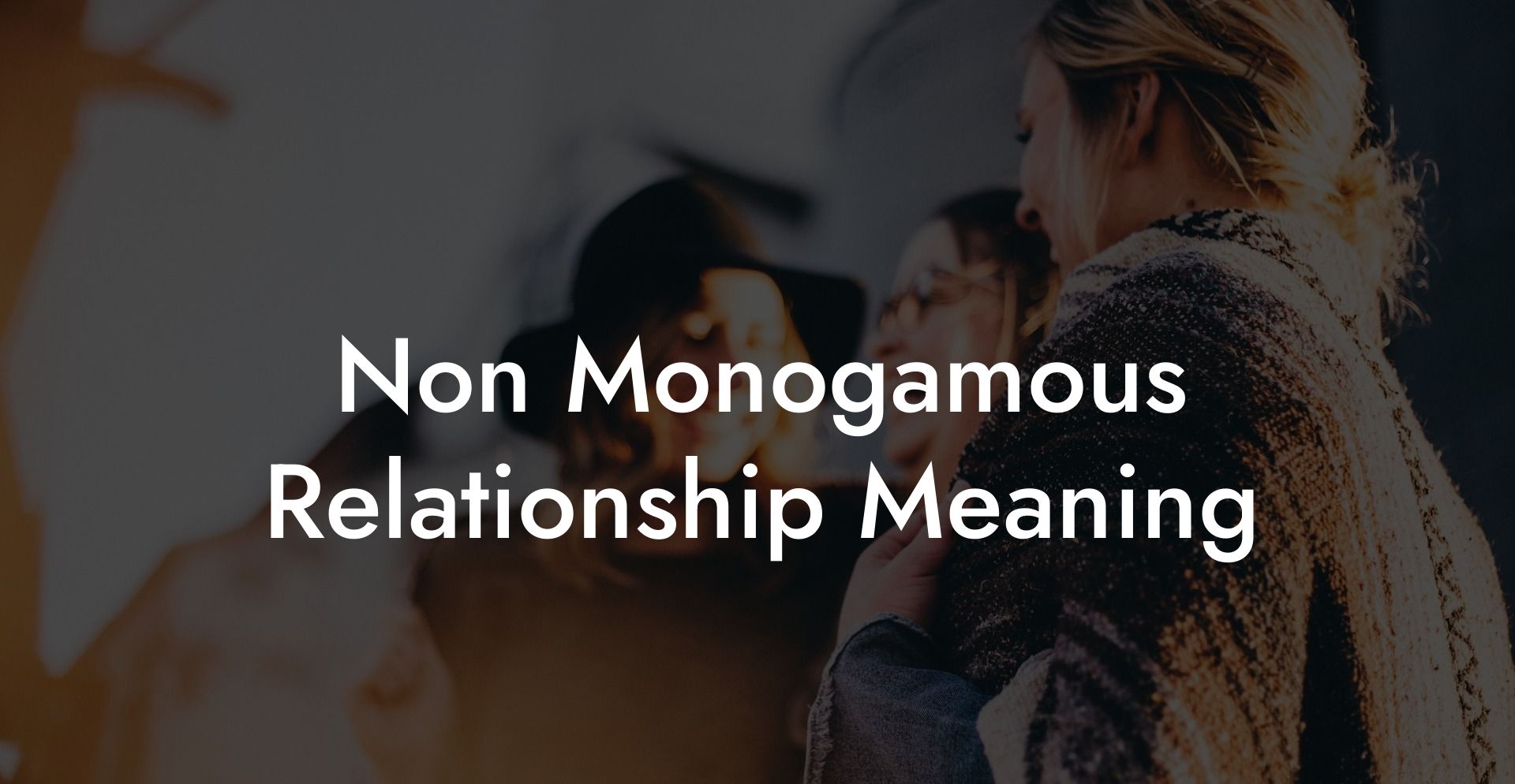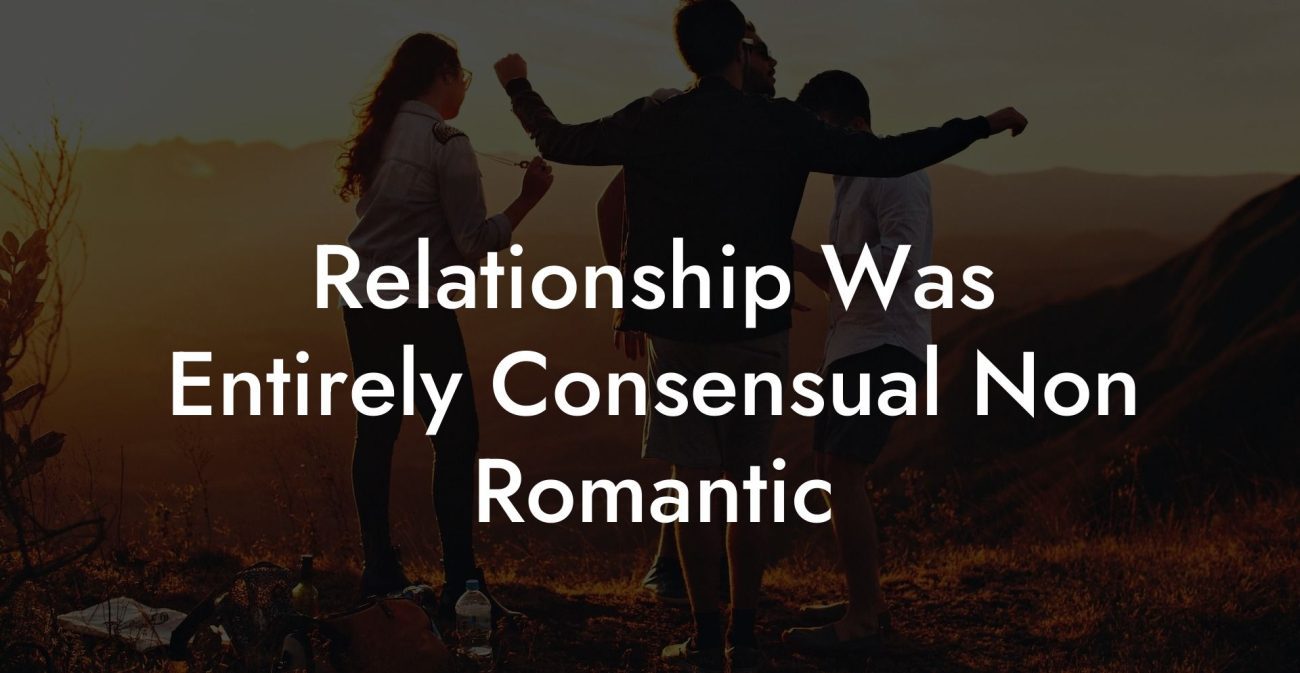Non-monogamous relationships are becoming more and more mainstream and accepted. However, delving into the realm of non-monogamy can be overwhelming and confusing for those who are new to the concept. In this post, we'll discuss the meaning of non-monogamous relationships, the types of non-monogamy, and some guidelines for navigating these unconventional relationships. Whether you're considering a non-monogamous relationship or simply want to understand it better, this comprehensive guide is just what you need.
Non Monogamous Relationship Meaning Table of Contents
What is a Non-Monogamous Relationship?
What is a Non-Monogamous Relationship?
A non-monogamous relationship is any relationship that does not adhere to the traditional, societal expectation of monogamy - that is, the state of being in a committed and exclusive relationship with one person at a time. In non-monogamous relationships, individuals may have multiple romantic or sexual partners, either simultaneously or sequentially, with the knowledge and consent of all involved parties.
Types of Non-Monogamous Relationships
There are several types of non-monogamous relationships, and it's essential to understand the differences between them to conclude what arrangement might work best for you and your partner(s).
1.
Open Relationships
Open relationships are a type of non-monogamous relationship in which both partners agree to engage in sexual encounters with other people outside the primary relationship. Communication and boundaries are vital in open relationships, as the degree of freedom varies from one couple to another.
2.
Polyamory
Polyamory is the practice of being in multiple loving and committed relationships simultaneously, with the knowledge and consent of everyone involved. This type of non-monogamy focuses on emotional connections and can range from hierarchical poly relationships, where one primary relationship takes precedence, to non-hierarchical relationships, where all connections hold equal importance.
3.
Swinging
Swinging, sometimes referred to as "partner swapping," usually involves committed couples engaging in recreational sexual activities with other couples or individuals. While swinging primarily focuses on physical pleasure rather than emotional connections, trust and communication between partners are crucial.
4.
Relationship Anarchy
Relationship anarchy is a philosophy that rejects traditional relationship structures and encourages individuals to form connections based on personal desires, values, and negotiations rather than societal norms. Relationship anarchists typically don't label their relationships or prioritize one kind of relationship (such as romantic or sexual) over another.
Guidelines for Navigating Non-Monogamous Relationships
Navigating non-monogamous relationships can be challenging, especially for those new to the concept. Here are some guidelines to help make your non-monogamous journey a success:
1.
Establish Boundaries and Rules
One key to a successful non-monogamous relationship is setting clear boundaries and rules to create a sense of security and trust. Open communication between all parties is essential to establish what is and isn't acceptable in the relationship.
2.
Clear Communication
In any relationship, communication is critical - but this is perhaps even more crucial in non-monogamous relationships. Ensure that you and your partner(s) are open and honest about your feelings, expectations, and desires, and make an effort to engage in regular check-ins.
3.
Practice Emotional Intelligence
Emotional intelligence - the ability to recognize, understand, and manage one's emotions - plays a significant role in successfully navigating non-monogamous relationships. Recognizing feelings of jealousy, insecurity, or resentment early on and addressing them can help prevent issues from escalating.
4.
Ensure Consent and Autonomy
Respect the autonomy of everyone involved in the non-monogamous relationship and ensure that all parties are willingly and enthusiastically consenting to the arrangement.
Non Monogamous Relationship Meaning Example:
Jane and John have been in a monogamous relationship for several years but both have expressed an interest in exploring non-monogamy. After several conversations, they decide to try an open relationship. They establish boundaries, such as only engaging in sexual encounters outside the primary relationship and being honest about their experiences. Both Jane and John find new connections, and with open communication, their primary relationship continues to thrive.
As you can see, non-monogamous relationships come in many forms and can bring a variety of new experiences and connections into your life. If you're considering a non-monogamous relationship, take the time to explore the options available and communicate openly with your partner(s) to find the perfect arrangement for you. We hope this guide has provided valuable insights into the world of non-monogamy. Please feel free to share this post with others and explore more guides on The Monogamy Experiment for further understanding and inspiration.













